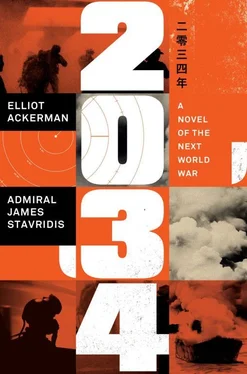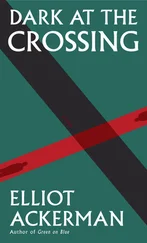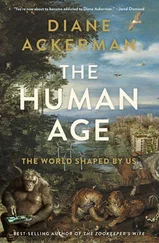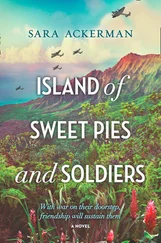Tensely, he collected himself and opened the folder.
It contained two envelopes. The two target sets.
One or another of the junior staffers had left a letter opener on the table for him. He slid the dull blade into the first and then the second envelope. Inside each were four paper-clipped pages, exhaustively stamped, certified, and serialized. On the top was a signature line, confirming receipt. He wrote his name, the only actual name that would appear on any of these documents. Then he skimmed over the authorizations, a labyrinth of anodyne operational language with whole passages that he himself had drafted on behalf of Minister Chiang.
Every detail was accounted for.
Which was to say with Lin Bao’s signature alone on the document, he was accountable for every detail: from the selection of the launch platform (whether it be surface-based, submarine-based, or aircraft-based), to the loading of the fissile material, to the readiness of the crews, to the accurate delivery onto the targets—
The targets…
For Lin Bao, this was the single unknown aspect of the plan. He imagined that Zhao Leji had chosen them himself. After their exchange on the golf course, Lin Bao half expected the old man to consult him as to their selection, to allow him again to assume the role of caddy. If given that chance, Lin Bao would’ve advised him not to overplay. A strike against the largest US cities—such as Los Angeles, or New York—would be too ambitious, the equivalent of choosing the 3-wood that day on the course. It should be two US cities for Zhanjiang, so an escalation. A parity should exist in the choice. Their South Sea Fleet had been based at Zhanjiang, so a similar military target would be appropriate, at least for one of the cities. The other target should be more industrial. Lin Bao thought of the advice he would have given had he been asked. However, Zhao Leji hadn’t needed another advisor. What he’d really needed was a receptacle for blame if his plans unwound.
A fall guy.
A patsy.
Which is what Lin Bao had been reduced to. In that moment, he made himself a promise: This would be the last order he ever followed. He would retire from the Navy.
But for now, he had a job to do.
He flipped to the final page of each document, where he found the coordinates that would serve as ground zero:
32.7157° N, 117.1611° W
29.3013° N, 94.7977° W
He plotted the first on a chart: San Diego . Then the second: Galveston.

08:17 July 20, 2034 (GMT+5:30)
New Delhi
Traffic in the city didn’t follow any logical pattern, or at least none that Chowdhury could decipher. During rush hour he’d find the roads empty and during the laziest parts of the day he’d find the roads congested to a standstill. He struggled to arrive at appointments on time. He would either show up awkwardly early, or woefully late. As was the case now, at nearly twenty past eight in the morning, as he struggled to navigate his way to his uncle’s house for a breakfast appointment that the vice admiral, using his military vernacular, had set for 08:00.
Business with his uncle needed to remain “unofficial”: retired Vice Admiral Patel didn’t technically represent his government in any formal capacity, which was why Chowdhury found himself crossing to the east bank of the Yamuna in the back of a taxi as opposed to an embassy car. Chowdhury couldn’t deny that his mother and daughter were safer now, staying with his uncle. But this placed him in an increasingly conflicted position, with the interests of his country not necessarily aligning with the interests of his family. So he reflected as he approached his uncle’s home for the 08:00 breakfast that was now closer to 09:00. And if Chowdhury was tardy to this meeting, he was equally tardy when it came to figuring a solution to his conflicted interests. However, he accepted that certain things, like the traffic, moved with a logic all their own.
When his uncle greeted him at the door, he didn’t mention the delay, and even explained that “his guest” had also arrived late, though not quite as late as his nephew. The house was empty aside from the three of them. At his uncle’s behest Ashni had enrolled in the local primary school, a decision Chowdhury hadn’t felt certain of but that his mother supported, leading to perhaps the first time in decades the two long-estranged siblings had agreed on anything. Chowdhury was glad that at this moment he wouldn’t need to face his mother or daughter as his uncle escorted him into the den.
The room was furnished with a love seat, a wing chair, a bookshelf, and a television in the corner on whose screen a troupe of colorfully attired dancers gesticulated about a stage in what looked like the climactic third act of some Bollywood production. A man stood waiting in the center of the room. Before Chowdhury could catch his name, he noticed that he had only three fingers on his right hand. They shook. Chowdhury was introduced as “my nephew, Sandeep, who works for the American government,” while his uncle introduced his guest as “Qassem, a Persian friend.”
A slight duplicity existed in Patel’s introduction, one which Chowdhury didn’t mind but of which he was certainly aware. His uncle evidently assumed that Chowdhury knew nothing of this Iranian officer. Chowdhury knew a great deal. He had read Major Mitchell’s debriefing from his captivity in Bandar Abbas, which included—among other details—a lengthy description of the three-fingered Iranian brigadier who’d beaten him senseless. What Chowdhury didn’t understand was how Farshad, a former senior-level officer in the Revolutionary Guards Quds Force, had wound up here, on a somewhat quixotic diplomatic mission to negotiate the release of an Indian tanker.
The three of them sat in the den, with Patel strategically placed in the wing chair while Farshad and Chowdhury were forced to share the love seat, a seating arrangement that reminded Chowdhury of the interminable sessions he’d spent in marriage counseling years before. Farshad and Chowdhury had begun to speak of their nations’ current dispute with the same low-level acrimony of one of those matrimonial sessions.
It was, said Chowdhury, unacceptable for the Iranians to claim control over the Strait of Hormuz. The consequences to the global economy, which had already suffered enormously due to the current Sino-American War and now teetered on the edge of a depression, would be devastating, to say nothing of the effects on Iran, which would surely suffer further censure and perhaps renewed sanctions, similar to what they’d endured two decades before during their failed nuclear bid.
At the mention of the sanctions, Farshad clenched his hands into fists. His face reddened. No doubt Farshad’s career, in Iraq, in Afghanistan, in Palestine and Syria, and wherever else he’d fought over the past thirty years, had been inextricably linked to the West’s punitive measures against his country, making Chowdhury’s evocation of sanctions far more personal than a policy disagreement between two nations. And knowing how Farshad had lost control of himself during his interrogation of Major Mitchell, Chowdhury now wondered if he might be the victim of a similar episode. Might he find himself battered to unconsciousness in his uncle’s den by this Iranian?
However, Farshad took a breath. His body language began to change. His shoulders relaxed. His fists opened. His complexion unreddened. Then, in his calmest voice, Farshad said, “I wouldn’t be here if my nation didn’t believe a solution existed to our current problem.”
Chowdhury, seizing upon this, nodded agreement. “We feel the same way. Neither of our countries wish to see a further spread of hostilities. I believe I also speak for our Indian allies when I say that they don’t wish to be brought into this conflict either. They’ve stayed out of our dispute with Beijing, as have our other allies like the Japanese, and it would be foolish for this conflict to take on an even broader dimension due to a”—Chowdhury paused a beat, searching for the correct word—“miscalculation.”
Читать дальше













